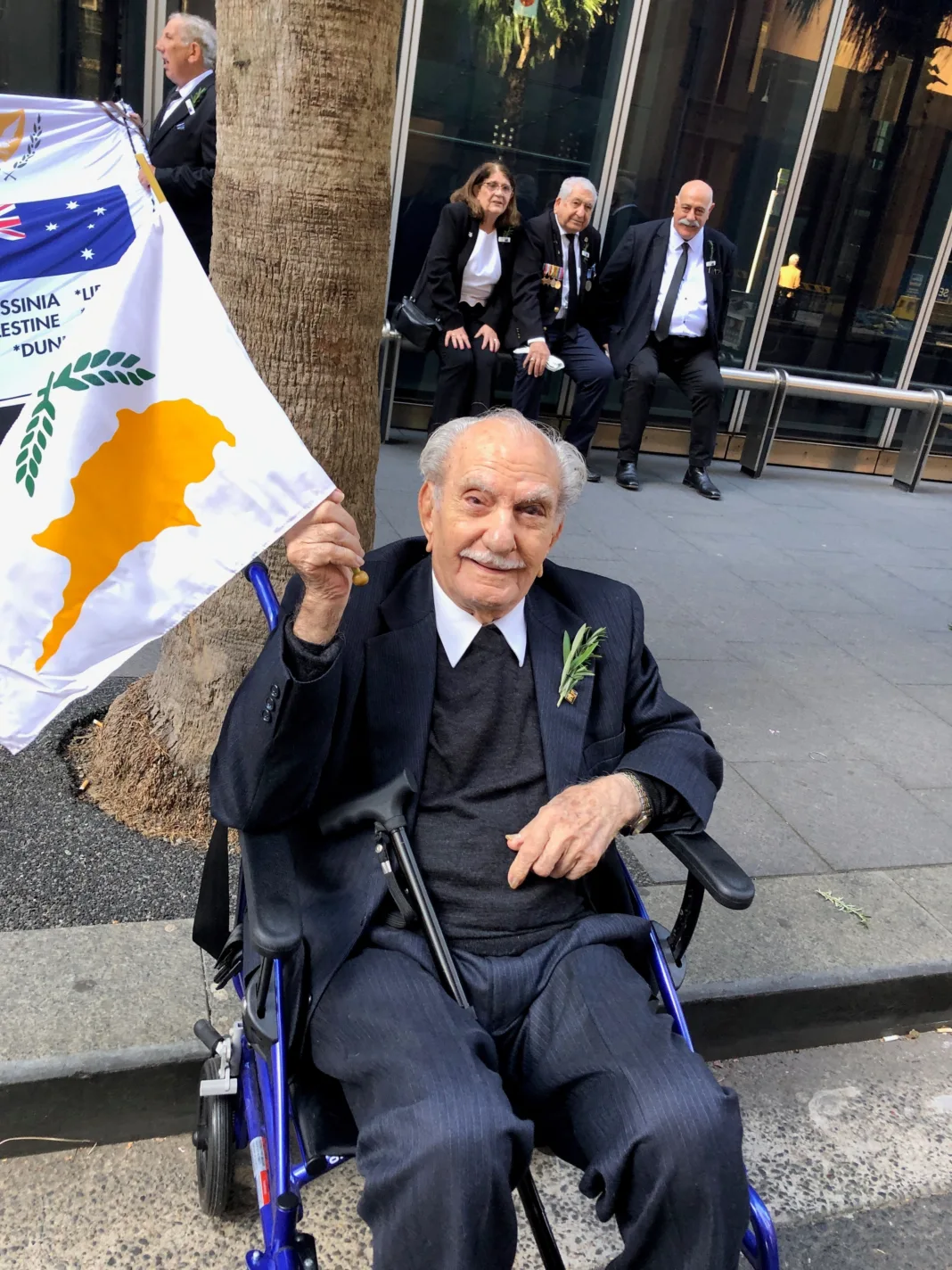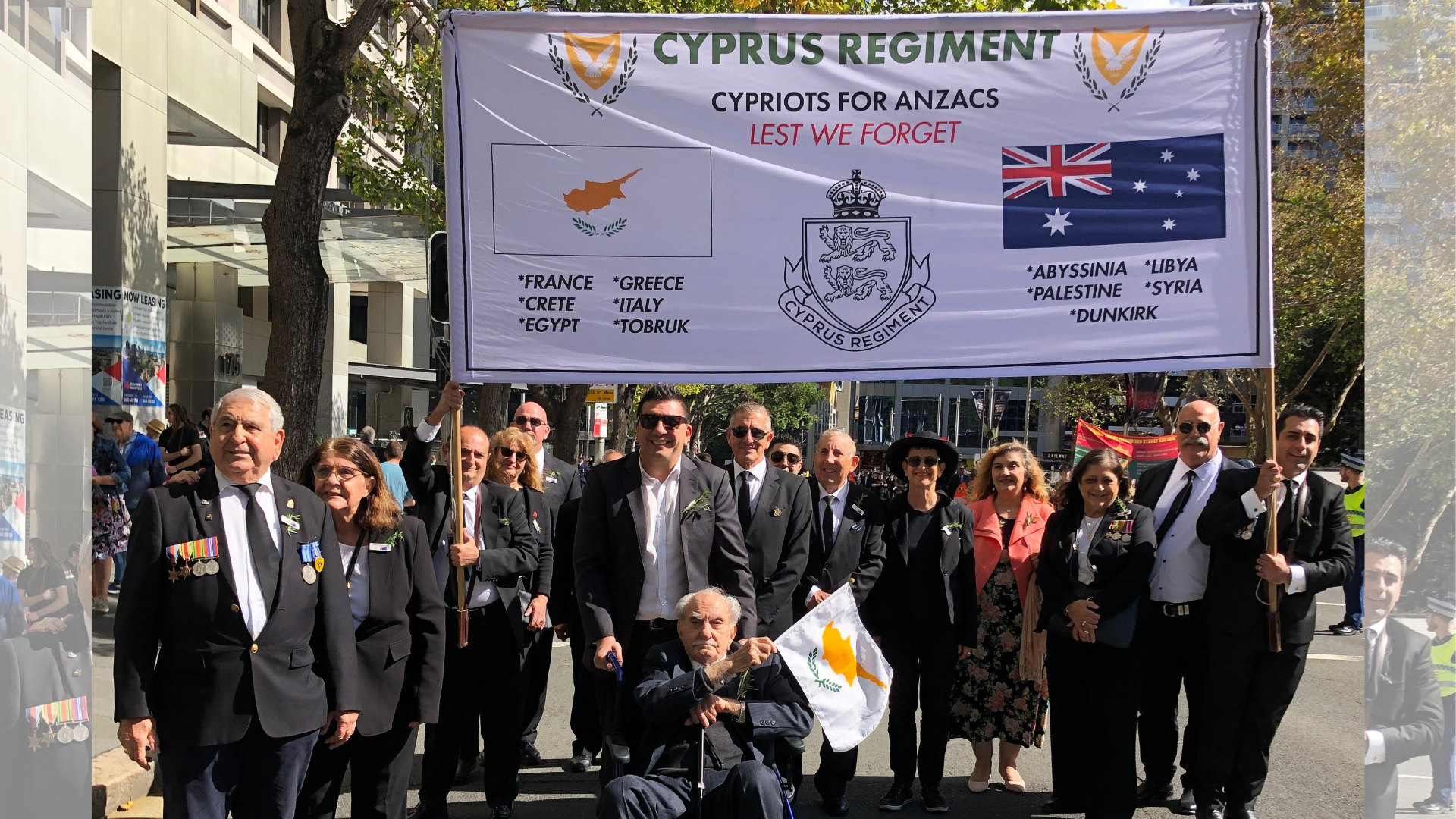Evripidis Mouxouris, a 104-year-old second world war veteran, will lead the Cypriot contingent at Friday’s march to mark Anzac Day in Sydney.
Mouxouris was born in Morphou in 1921 and enlisted to fight in the war in 1943 in the British army’s Cyprus regiment, alongside 800 members of Akel.
He served in Palestine, Egypt, and then Italy, seeing frontline action during the Battle of Ancona in 1944 as allied forces fought to take the eastern Italian port from Nazi control.
He moved to Australia in 1976 following the Turkish invasion of Cyprus, which saw Morphou among the areas which fell under Turkish control thereafter.
Australia’s Greek Herald newspaper reported that he said that today, he would “tell the youth to continue to fight for the freedom of Cyprus”.
He is also quoted as having said he is “very frustrated with humanity because they engage in wars without any reason, they kill people without a reason, and with no interest in humanity”.

Additionally, the newspaper wrote, “he said he fought for his country’s freedom and decades later, others invaded his home, took all his belongings, his property, and kicked him out of his homeland”.
Anzac Day is a national day of remembrance in Australia and New Zealand which commemorates people from both countries who served and died in all wars, conflicts, and peacekeeping operations.
It is observed on April 25 every year and was initially observed to honour the members of the Australian and New Zealand army corps (Anzac) who served in the Gallipoli campaign in the first world war.
The Gallipoli campaign was an expedition carried out by the Allied powers which set out to capture the Gallipoli peninsula in eastern Thrace, eventually capture Constantinople, now Istanbul, open the way to the Black Sea for allied navies, and knock the Ottoman Empire out of the war.
However, the Ottomans, led by Mustafa Kemal, later Ataturk, resisted the onslaught.
The heavy casualties and great hardships faced by the soldiers resonated with Australians and New Zealanders at home, and as such, the day of their landing, April 25, became a day of remembrance.






Click here to change your cookie preferences